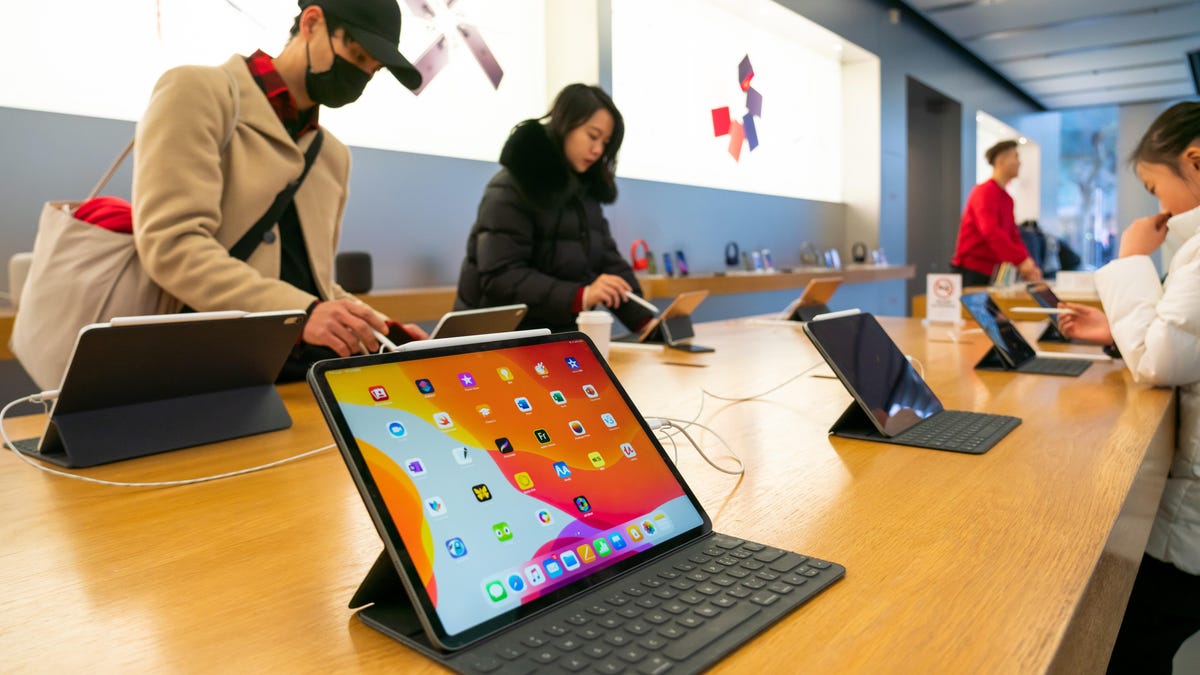Apple closes two more China stores on coronavirus worries
Three of its retail locations in the Asian country have been temporarily shuttered as the disease continues to spread.

Apple has closed three of its China stores due to concern about the coronavirus.
Apple has temporarily shuttered two more stores in China, bringing the total closed as of Wednesday to three, as worries about the coronavirus rock the globe.
Apple CEO Tim Cook on Tuesday said Apple had closed its Qingdao store earlier this week as a precaution. Two more stores, in Fuzhou and Nanjing, are now also closed because the malls they're located in have been temporarily shuttered.
The coronavirus was first detected in the Chinese city of Wuhan late last year. It has claimed more than 130 lives and infected roughly 6,000 Chinese citizens with a pneumonia-like illness, according to China's National Health Commission. The virus, known as 2019-nCoV, was reported to the World Health Organization on Dec. 31 and has been under investigation since. Chinese scientists have linked the disease to a family of viruses known as coronaviruses, which include the deadly SARS and Middle East respiratory syndrome.
The virus has since spread to Europe, Australia and the US. Scientists have yet to fully understand the destructive potential of the new virus. Researchers and investigators are just beginning to figure out how it's transmitted and how far it has spread.
Apple on Tuesday said it wasn't immune to the virus sweeping the globe.
Apple's China footprint
China has become one of Apple's most important markets over the past several years. In early 2015, China surpassed the US to become Apple's biggest iPhone market. (The US later regained that status.) Apple's revenue from Greater China rose 3.1% to $13.6 billion in the quarter. It lagged behind the Americas and Europe, but sales in some product areas soared during the period.
While Apple sells a lot of its gadgets in China, it's also tied to the country in another key way. Apple designs its phones in the US, but the devices -- like many other electronics -- are assembled in China.
Along with Apple's closed stores, "a number" of its retail partners have also closed their locations, Cook said Tuesday during Apple's quarterly earnings call. "Many of the stores that remain open have also reduced operating hours," Cook said, and the company is taking extra precautions for its staff and customers. It's deep cleaning its stores frequently and conducting temperature checks of retail workers to make sure they remain healthy.
"While our sales within the Wuhan area itself are small, retail traffic has also been impacted outside of this area across the country in the last few days," Cook said.
Apple also has suppliers in the Wuhan area, but it has alternative sources for those components and is "working on mitigation plans to make up any expected production loss," Cook said. What's less clear is how the coronavirus will impact suppliers in other parts of China, he said. The Chinese government extended the Lunar New Year holiday break from the end of January to Feb. 10, which will delay the startup of Apple supplier factories, Cook said.
"The situation is emerging, and we're still gathering lots of data points and monitoring it very closely," Cook said Tuesday. He noted that as of last week, Apple had limited employee travel to affected areas to "business critical situations."
Bloomberg earlier reported news of the store closures.

